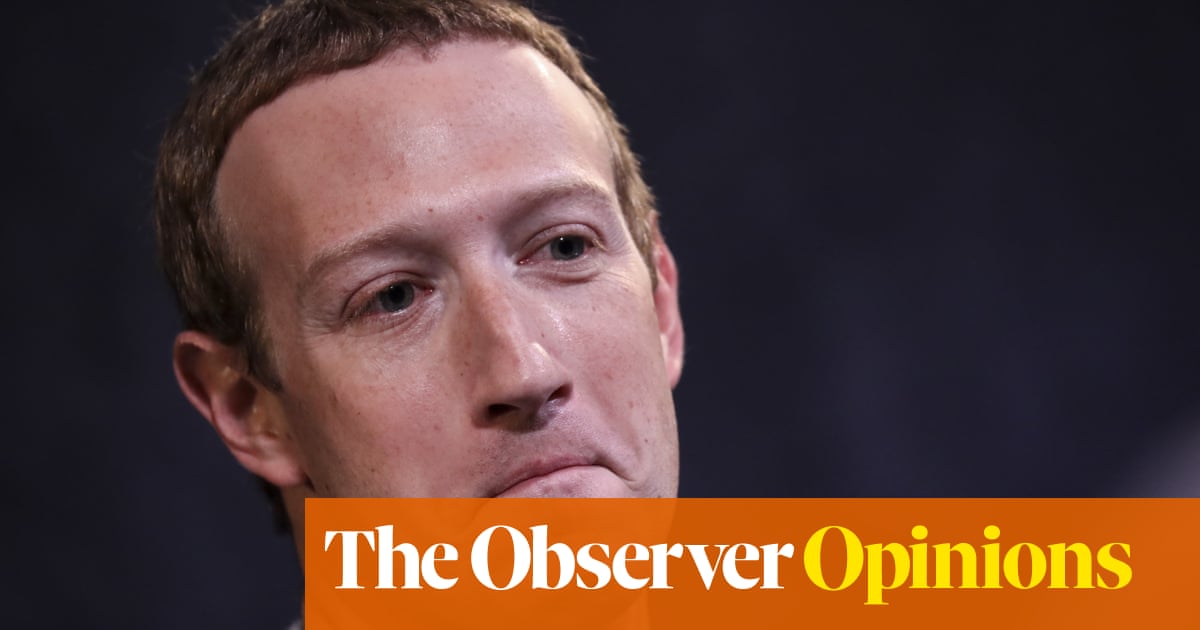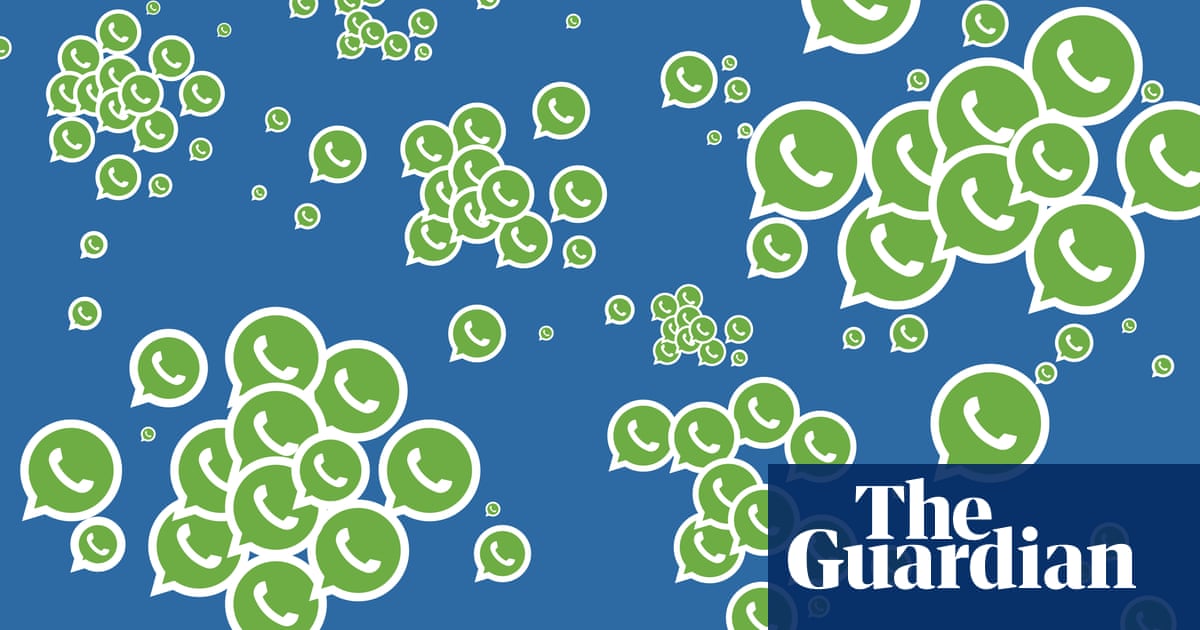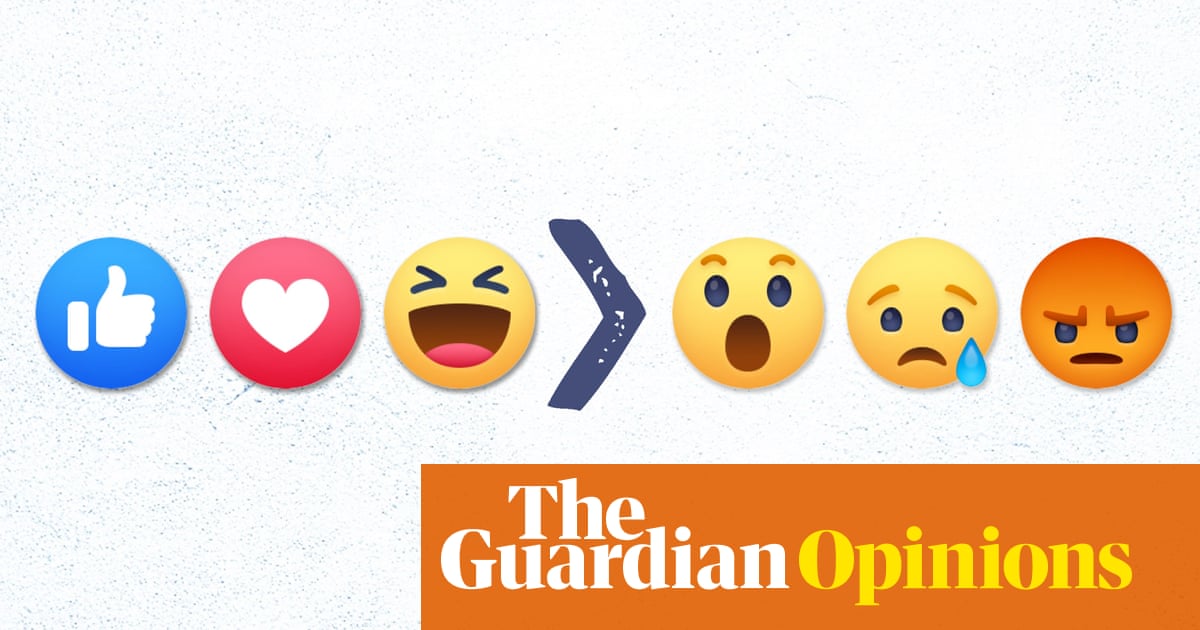Facebook is an accelerator of our toxic times, not its cause
Facebook has merely harnessed and amplified the networks already at work online. Blaming the symptom for the problem is no route to a solution.

It's been another weekend of anti-Facebook rhetoric across the media, and from The Guardian in particular. So much of it comes down to "everything is broken" and "it's Facebook's fault". The first point is clearly open to debate, but I'd like to suggest that the second is just wrong. And I'm not doing this to defend Facebook — I've got a proud 13 year history as a Facebook sceptic - but to make sure we're addressing the right problem, rather than a particularly unpleasant symptom.
Carole Cadwalladr, whose reporting has done so much to expose how Facebook can be used to reshape public opinion, kicked it off with a response to Nick Clegg's attempted defence of the platform, in which he claimed that Facebook was just a mirror to society. (He seems to have been picking up on danah boyd's work in that.)
Cadwalladr:
Facebook is not a mirror. It’s a gun. Unlicensed – it is not subject to laws or control – it is in the hands and homes of 2.6 billion people, infiltrated by covert agents acting for nation states, a laboratory for groups who praise the cleansing effects of the Holocaust and believe 5G will fry our brainwaves in our sleep.

She's right that Facebook isn't a mirror. It's an accelerator. Or, if you prefer to hold on to the mirror metaphor, a distorting funhouse mirror.
Toxic ideas can grow without Facebook
The strength of the internet, since its earliest days, is allowing people to connect by interest or idea rather than by geography. Many of the most toxic communities online were not formed on Facebook: 4chan and 8chan, for example, are very much their own entities.
As danah boyd wrote in It's Complicated: The Social Lives of Networked Teens:
The internet mirrors, magnifies and makes more visible the good, bad and ugly of everyday life.
Facebook has merely taken that trend, centralised it and reduced friction.
In the Old Days of The Internet, it you wanted to create an online group for your 5G conspiracy theory, you had to install forum or mailing list software on a server somewhere, and then hope others would find you via search or recommendation.
Now? It's a couple of clicks on Facebook, and you have a group, and ready access to it from the billions of Facebook users. Zuckerberg took the internet, distilled it and bottled it, and made sure that everything that happens through it benefits him and his control of the ecosystem.
In other words: we'd probably have reached this point anyway: Facebook just accelerated the process.
Closed communities can incubate toxic ideas
Indeed, it's easy to suggest that Facebook is at fault simply because it makes everything so much more open and connected, so toxic ideas can travel so much faster. And that's true. But that doesn't mean that the response is to retreat from mass scale social networks to small ones.
Where do toxic ideas grow? In small spaces. In closed spaces. In places where those ideas can be expressed without criticism. As another Guardian piece on a Facebook property — WhatsApp — explores:
It’s understandable that in order to relax, users need to know they’re not being overheard – though there is a less playful side to this. If groups are perceived as a place to say what you really think, away from the constraints of public judgement or “political correctness”, then it follows that they are also where people turn to share prejudices or more hateful expressions, that are unacceptable (or even illegal) elsewhere.

When people had to connect geographically, toxic ideas couldn't spread as easily. People couldn't connect as fluidly with others who would tolerate the same ideas. Local social opprobrium acted as an immune systems against ideas too far outside the accepted societal norms.
Now, you can find people online who will reinforce you in even your darkest thoughts. They become acceptable. Social reinforcement stops your questioning your ideas. A community grows. Ideas spread.
Restoring social consequences
So, the problem at work is two-fold:
- Online connection allows ideas outside social norms to take hold quickly, especially when combined with geographic disconnection
- Centralised services act as an accelerator both of the birth of these ideas and their spread.
Together, they can actually start accelerating the change of social norms within groups, as people become more and more comfortable articulating thoughts in public, that once would have never left their own heads.
And that includes the normalization of abuse and intimidation that would not be acceptable in other arenas of life:

At some point, the only way forwards from this is to start making sure that there are consequences for online behaviour in the same way that there are consequences for offline abuse. Making death threats on social media should carry the same consequences as a death threat pushed through the door. And, in many cases, the legislation already allows it. It's the enforcement that needs to grow.
Too many people still feel that unpleasant online behaviour carries no consequence, and until that changes, no amount of railing at Facebook itself will change the underlying dynamic.
If anything gives me hope in this moment, it's that, by their very nature, the more socially unacceptable ideas have thrived in the early days of this technology. People who deeply believe in controversial ideas have much more incentive to exploit these characteristics of digital discourse, as they were the ones least likely to be able to successfully spread their ideas through other means. This has led to what I've characterised in the past as asymmetric information warfare.
It's time for the rest of us to take spreading our ideas via digital tools much, much more seriously.
Tweaking your way to better memberships
Great case study from the equally great work the EJC is doing on engaged journalism:

The emerging newsletter media
Interesting piece on how Substack (among other platforms) is facilitating a new breed of hyperniche media entrepreneurs. (You don't need Substack, you can use MailChimp or Ghost or Revue or… Substack just centralises things and reduces friction. A bit like Facebook, in fact…)
While this is good and everything, Substack worries me in the same way that Medium worries me: neither allows you to use your own domain. Everything is on Substack.com. And as long as that persists, you don't really have your own business - you are renting it from Substack.
Imagine, in the early days of blogging, if you could only use blogger.com or typepad.com URLs?
It's not in interests of these VC-backed companies to give you potential independence from the platform. Indeed, Medium actually pulled back from it. Let's see if the Substack team have the integrity to allow people to start using their own domains. Otherwise, they're just another flashy roach motel.

Online abuse of journalists survey
Talking of unacceptable online behaviors, some local publishers in the UK are joining together to survey journalists on the experience of abuse:

Or you can just go directly to the survey.
The Lean Back Read: why Monday is angry day on Twitter
This is why I haven't even opened Twitter today yet:











